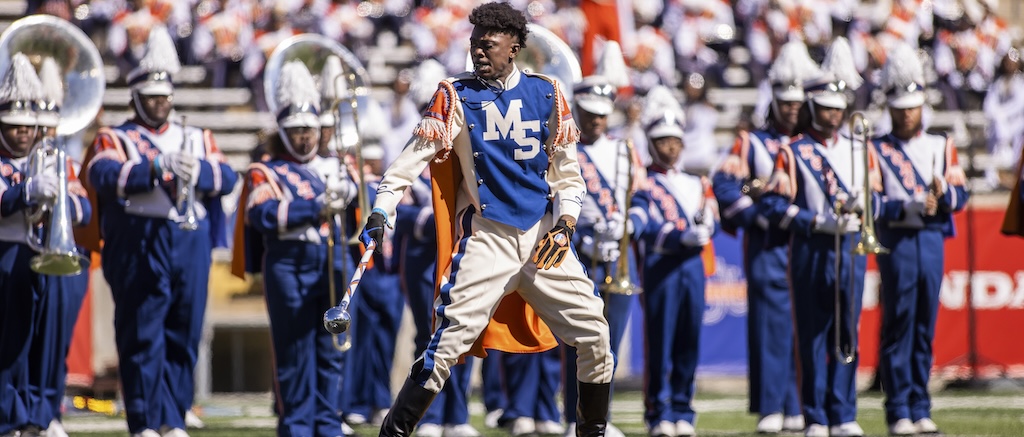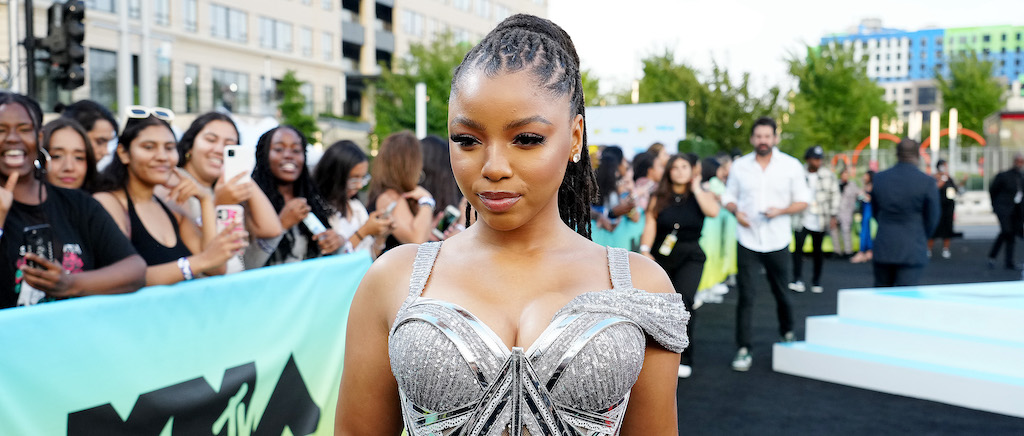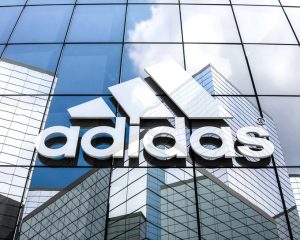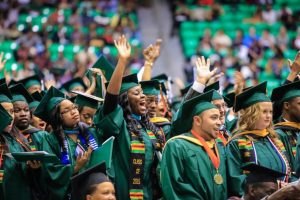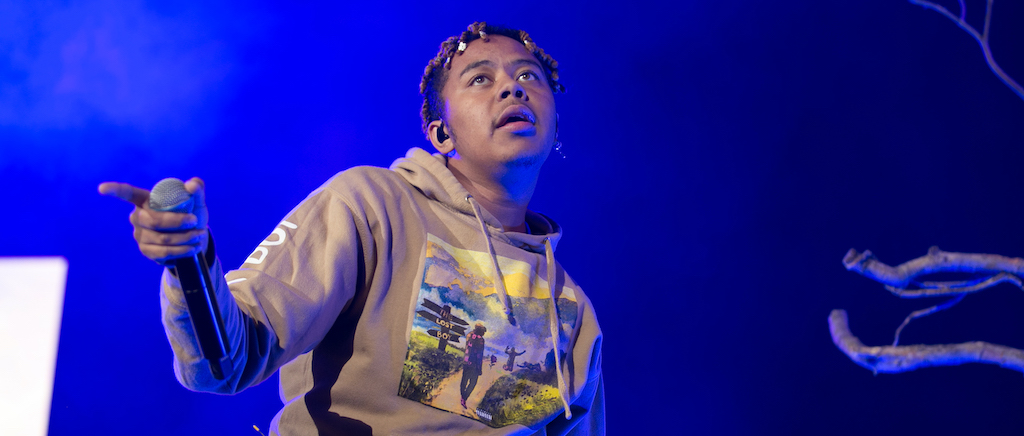
If you’ve graduated from a HBCU or visited a campus during its annual homecoming celebrations, it’s apparent that music is a significant part of HBCU culture, specifically the football game’s halftime marching band performance. A seemingly endless catalog of genres — including hip-hop, gospel, R&B, pop, and soul — is transformed into a melodic mashup that captivates the crowd almost more than the game itself.
The camaraderie among other dedicated fans in the audience is the best part of the game, from listening to the commentator’s playful remarks, to watching the majorettes perform their thoroughly practiced choreography, to enjoying the band’s funky routine that complements their euphoric sound. It’s an unmatched tradition that you can’t experience anywhere but at an HBCU football stadium.
For the marching band members, these pivotal moments inspire them to mingle music into their lives after graduation.
Raised in a family of musicians, Morgan State University graduate Malik Freeman already had the influence and willful determination to pursue the marching band at Morgan State. While Freeman and I discussed Drumline, the 2002 coming-of-age dramedy starring Nick Cannon, he mentioned that this film was a pivotal inspiration for joining a collegiate marching band.
According to Freeman, the culture of an all-Black school and competitive nature between the rival bands were accurately portrayed in the movie and led him to “wanting to be a part of that,” and it happened throughout his journey as a tenor drummer.
“It wasn’t really that dramatized, but it was like the closest thing you can get when it comes to HBCUs –- the [fraternity] organizations, the band, and the music organizations that they represented in that movie,” he said.
After graduating in 2019 with a bachelor’s degree in music education, Freeman’s connection with an old friend led to an opportunity to advance his talent in a different setting.
“[Marching band] is embedded into my DNA and my life at this point, because this year, I’m running my elementary school’s bucket drumming club,” he said. “I got this plan to put on performances and really work with these kids. I’m gonna create some cool stuff.”
In addition to teaching, Freeman is also DJing, consuming more music history, and playing in a heavy alternative band.
The former-marching-band-member-to-teacher pipeline is more common than you’d think. For example, Spelman College graduate Dianna Sanders cherishes her time as a trombone player with the members of Morehouse College’s House Of Funk, and it influences her today as a teaching assistant at Florida Atlantic University.
Sanders frequently “refers back to [her] roots from marching band at Morehouse College,” so she acknowledges that there are some clear differences between the musical style at HBCUs in comparison to her current work environment.
“[Florida Atlantic University] plays similar music because we’re a South Florida school, they’re very cultured down there,” she said. “We do play HBCU-style music in the stands, but there’s just some things I simply cannot teach them. I’m always making comparisons in my head, like there’s just something each band does better than each other, but that’s the beauty of music overall.”
During my junior year at Florida A&M University –- one of the state’s two historically Black colleges -– I enrolled in a jazz history course taught by Professor Lindsey Sarjeant. The syllabus for the semester-long class detailed the development of jazz music throughout the 19th century, and it indirectly revealed the thorough preservation of Black music that occurs at HBCUs.
Beyond this course, Sarjeant’s notability in Tallahassee arises from his work as the chief band arranger for the incomparable Marching 100, FAMU’s collegiate marching band that has accrued global praise for performances like the 2007 Super Bowl Halftime Show and the Louis Vuitton Men’s Fashion Show in Paris.
The incomparable high-energy sound that separates HBCUs and predominantly white institutions is a result of the late Dr. William P. Foster. In 1946, he was hired as the director of bands at Florida A&M University and founded the Marching 100, and his innovative contributions revolutionized all marching bands. Any viral performance that includes a modern hip-hop or R&B song is more than likely a result of Foster’s advocacy.
Interacting with a professor like Sarjeant or Foster is a testament to investing in blossoming students and historically Black music programs. Whether it’s their intention or not, a syllabus with a history of jazz, ranging from the Harlem Renaissance to the evolution of modern music, is a key factor in preserving Black history.
Like Sanders and Freeman, Alabama State University alum Ayana Cummings pursued a career in music education after marching band. Even though her mother and high school band director piqued her interest in attending Alabama State University, her musical influences derived from a drum set that her six-year-old self received for Christmas, as well as middle school and high school band.
In college, her degree focused on percussion and music composition, and her hard work in the band led to an achievement as her alma mater’s first female percussion section leader.
“All the knowledge that I have about music came through my degree in performance, as well as actually performing, and I’m able to use that to navigate through the education world,” she said. “I was percussion section leader [in college] — you’re doing a lot of teaching and a lot of explaining, and you’re responsible for a lot of people and your peers, so all of that really helped me to be comfortable in the education world.”
But what happens after graduation, when a background in marching band isn’t paired with an interest in teaching? As Freeman mentioned, it’s a disservice to not fully immerse yourself in music history, at least one post-graduate visit to homecoming, and a casual jam session with fellow musicians. My own involvement in college radio led to my interest in DJing, and the graduates I spoke to shared their future plans for film scoring, music supervision, and production.
For Edwin Mompremier, a fellow graduate from Florida A&M University, his participation in the university’s jazz band and symphonic band opened up different opportunities to perform live music in Tallahassee.
“While I was marching, I was still doing other gigs,” he said. “It ranged from being at church to playing at shows, but my first real break came when I started playing with Tallahassee Nights Live [a local jazz ensemble], and that’s when I got more exposure, met some more people, and got involved in the music scene a little bit more.”
These are just a few of the stories that demonstrate how the longstanding marching band tradition at HBCUs doesn’t just set Black college bands apart: It also keeps history alive and prepares students for greater opportunities when they graduate.


